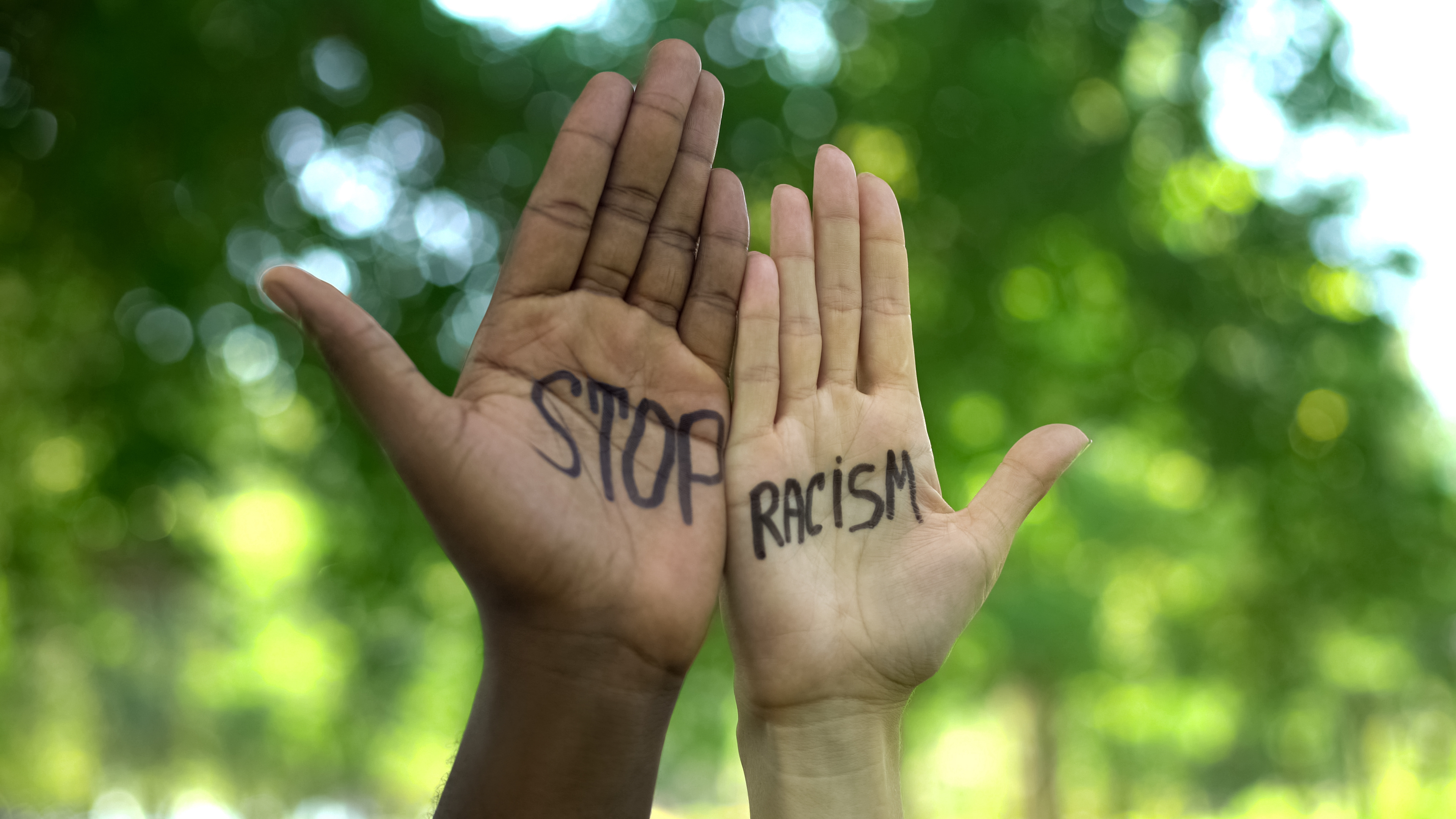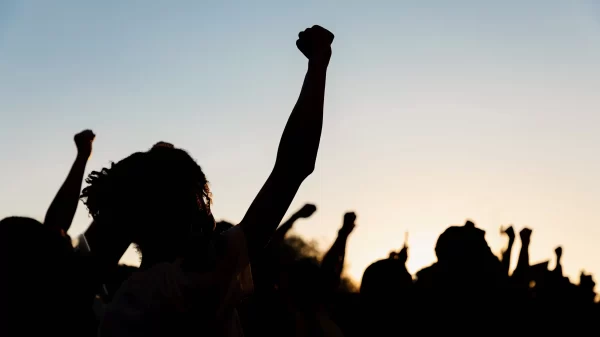I am a white, past middle-aged woman who grew up in rural North Alabama. We farmed for a living, raising corn, cattle, hogs and cotton, which we picked by hand with extended family. We knew little but hard work. Never took a family vacation. I was engaged at fourteen, married at seventeen and divorced a few years later.
I had many lessons to learn about the world around me. I had never seen a black person until I was ten years old. However, my father and mother made a profound impact on my attitude toward race. I remember one day my mother and I were in the Cullman County Courthouse and I asked, “Mama, why are there separate water fountains?” Mother said, “There is no good reason, honey, no good reason.”
My father too influenced me by being against George Wallace. After George Wallace stood in the schoolhouse door at the University of Alabama, my father said, “I will never vote for him again. That could have been you trying to go to college.”
My life took some unusual turns that put me in contact with African Americans much more than most folks who grew up in rural North Alabama. I spent twenty-five years in higher education where I worked closely with black people. Also, I became involved in politics. In 1982, my husband, Paul, was elected to the Alabama House of Representatives where he served sixteen years. In 1998, I was elected as Alabama State Auditor and later as Public Service Commissioner. In 2002, I became the first woman in Alabama ever elected as a major party nominee for the U S Senate when I ran against Jeff Sessions.
During these years, Paul and I attended black churches and black political events on a regular basis. We came to know black people personally and listened to their stories and heard the pain of their past and present circumstances; poverty, poor schools and inadequate low-income housing. I learned about systemic racism.
So there is that phrase, “systemic racism” that we are hearing a lot of these days. As a woman of white privilege, I would like to offer my perspective.
First of all, white privilege. If you don’t think you have it, I believe you are mistaken. You might be thinking, well I did not grow up privileged. Like you, I grew up scraping to get through college working two jobs. You may say, “I think everyone who works hard can pull themselves up by their bootstraps.” If you think that, it probably has never occurred to you that many people do not even have boots.
Throughout my life, I was always encouraged by others to succeed. I was praised and complimented for my hard work. I was told to “keep it up and you will get somewhere one of these days young lady.”
Contrast that with just a couple of examples from very successful black women. Former Secretary of Labor, Alexis Herman, spoke of being armed with her newly earned Bachelor’s degree in finance, with honors, she interviewed for a job in banking. The interviewer, an older white man, said, “Why did you waste my time applying for this job, you will never be anything but a secretary.” I guess “Madam Secretary” showed him.
Most of us have heard the story of Oprah Winfrey who said her white fourth-grade teacher told her that she would never amount to anything. Oprah told how these words inspired her to “show that teacher” that she would become accomplished and successful.
While these are only two stories and they are used in motivational speeches to inspire people, THIS is systemic racism. THAT is white privilege. Just because I am white I was much more likely to be encouraged and supported by everyone.
Have you ever been followed in a department store by a clerk who was not interested in helping you but just making sure you didn’t steal anything? I have not. But my friend, Jeanne, a lovely African American woman, says it is common for her. White privilege is that I do not have to endure that.
In 2018, I took a position as Interim President of Memphis Theological Seminary in Memphis, TN. The majority of students at the seminary are African American. I learned a lot from these students and the faculty and staff about racism. I learned that having many college degrees and important positions did not matter so much when they left the seminary. When my friends went into any environment where they were the only black person or one of only a few, it would be likely they would be ignored, followed, harassed or dismissed only because of the color of their skin.
One evening after a class I was attending, I experienced something that really brought racism home for me. The professor was Rev. Dr. Perrin Rice. Dr. Rice is a tremendous teacher and pastor of a large interdenominational, mixed race church in Dallas, TX. He is an African American about forty-five years old.
When I entered the class that evening, Dr. Rice was already there. After class, we all put on our coats and went out together. When I got to my car, I turned to see a black man wearing a hoodie pulled down over his face. I froze for a moment. I was scared. Then I realized, that black man in a hoodie was Dr. Rice. I had been conditioned to fear someone only because of their dress and the color of their skin.
As a young woman, I attended a workshop where I was instructed to “get in the skin” of a person with a disability. I chose to be in a wheelchair. My task was to get myself across town to an interview with only $20. I had never ridden a city bus but I figured out which bus to take, got help from people to get me on the bus and arrived at my interview–an hour late. I did not pass the test. We cannot make our skins black and experience what it is like to live in a black person’s skin. But here’s what I think we can do.
We can have small group sessions in churches all over America. One of my theology professors once said, “If blacks and whites did not share Christianity, we would never have survived the last one hundred years.” So let’s start in churches.
If white people will come to listen. Not commenting and saying yes but. . . . If we will really listen to what black people’s lives are like and try to understand how it feels to be degraded, followed, given dirty looks or simply ignored only because of the color of one’s skin.
Then, one step further. We should work to make changes in policy, education, policing, the court system, the economy and our churches so thatwe begin to address the cancer of systemic racism in our society.
Maybe this could be a humble beginning. It is long overdue.
Susan Parker is a Cumberland Presbyterian minister and former educator. She served as Alabama State Auditor 1998-2002 and Public Service Commissioner 2006-2010. She and her husband Paul Parker live in Rogersville, Alabama on the Elk River.


















































